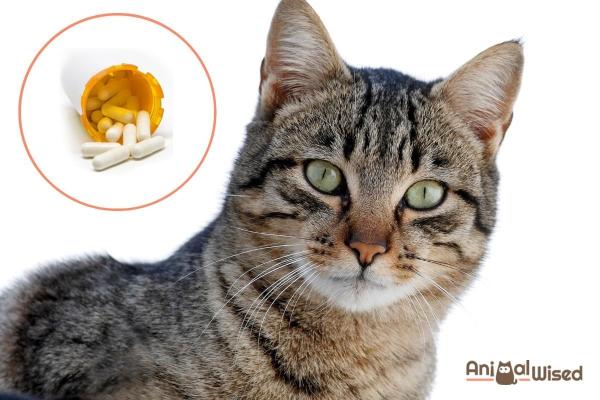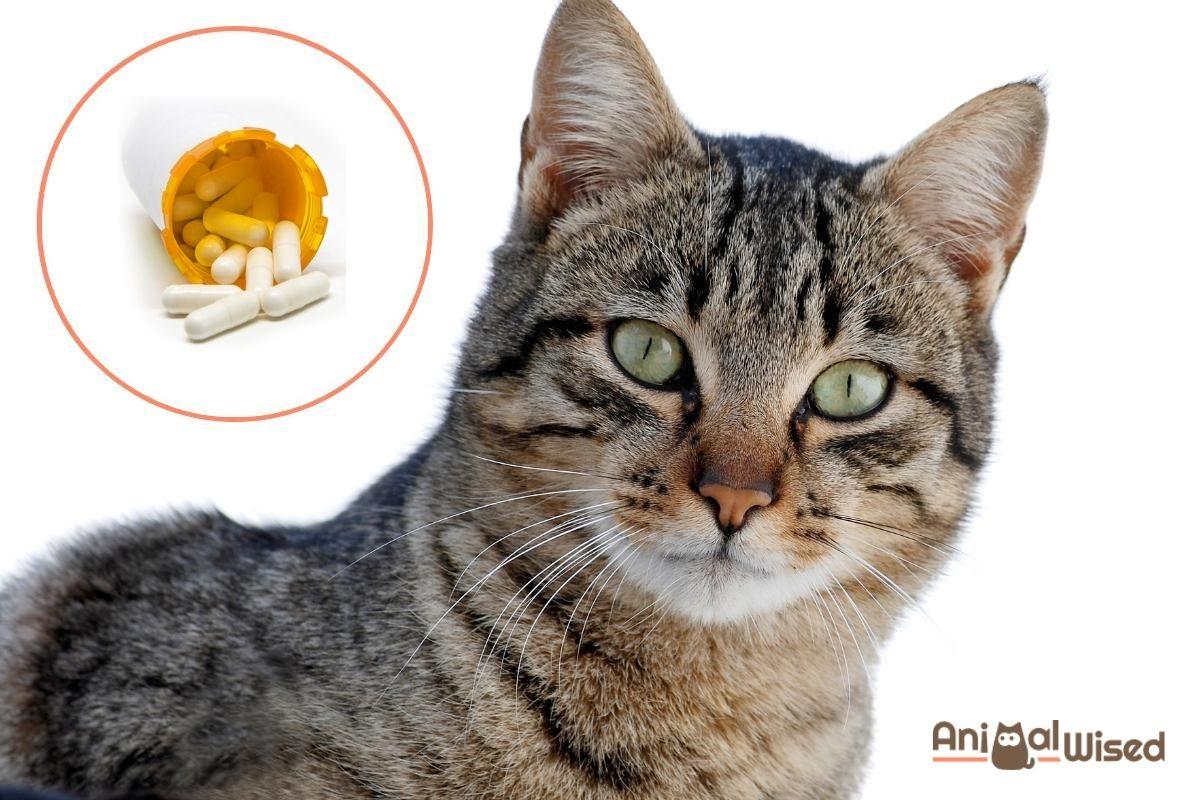Is Carprofen for Cats Safe?



See files for Cats
Carprofen is a non-steroidal anti-inflammatory drug (NSAID). It has the potential to inhibit cyclooxygenase I and II enzymes, with greater potential to inhibit the latter. The purpose of this inhibition is to limit the risk of kidney, gastrointestinal and liver damage by mediating inflammation, pain and fever. For this reason, it is useful for the treatment of inflammatory diseases, infections, joint problems, degenerative musculoskeletal diseases and postoperative pain in humans, but is carprofen for cats safe?
While carprofen may be used by veterinarians on rare occasions, it is considered unsafe for cats. AnimalWised looks at the reasons why.
What is carprofen for cats?
Carprofen is a drug from the group of drugs known as non-steroidal anti-inflammatory drugs (NSAIDs). As their name suggests, they have anti-inflammatory action, as well as antipyretic (fever reduction) and analgesic (pain relief) activity. Like all NSAIDs, it is known to be an inhibitor of the cyclooxygenase enzymes COX I and COX II. It is most effective against the latter. This enzyme is the one most involved in pain and inflammation through the release of mediators after oxidation of arachidonic acid (prostaglandins). These substances are related to:
- Pain
- Inflammation
- Tumor development
- Functions in homeostasis
- Inner equilibrium
This drug inhibits COX I, which is involved in maintaining the physiology of the gastrointestinal mucosa and renal blood flow. For this reason, the inhibition of prostaglandin synthesis in cats at therapeutic doses of the drug slightly inhibits prostaglandins, not inhibiting them as much as other NSAIDs. As they are more selective against COX II and less selective against COX I, they are considered safer for renal and gastrointestinal function, having the same efficacy in their analgesic and anti-inflammatory effect.
This drug is poorly distributed, i.e. it does not distributed widely through tissues. However, it does bind widely to plasma proteins, with maximum binding 3 hours after administration. The half-life of this drug in cats is between 9 and 49 hours after intravenous administration.
Can carprofen be used for cats?
Due to its anti-inflammatory, antipyretic and analgesic properties, carprofen in cats has been proposed for the following uses:
- Postoperative pain: most commonly for cats after soft tissue and orthopedic surgeries.
- Symptomatic treatment of fever: infectious diseases with concurrent fever and for all diseases that cause inflammation in this species. Learn more about symptoms and treatment of this condition with our article on fever in cats.
- Osteoarthritis: a chronic, degenerative disease in which the articular tissues that make up the feline's joints, bones, capsules and joint cartilage are worn down. The first clinical signs that can be observed in cats are refusal to climb heights, reduced movement, increased meowing, discomfort on palpation, self-mutilation and behavioral changes.
In cats with osteoarthritis, the elbow, hip, lumbar and tarsal joints are generally most affected. Since the problem is often due to degeneration, it appears more frequently in older cats. Being overweight also worsens the disease by putting more strain on the cat's already weakened joints.
While carprofen can theoretically work to treat the above issues, it is not considered safe for cats. If it is ever used, it will be under strict conditions. Its use is usually do to a lack of a safer alternative, such as if a cat has an allergy to another drug. We explain why carprofen is bad for cats in the next section.

Is carprofen safe for cats?
Carprofen has been tested and used in cats for pain and inflammation management in some cases. However, the scientific consensus still states that it should be avoided unless completely necessary. Its use is not standard practice and comes with significant risks.
Cats metabolize NSAIDs differently than dogs, and carprofen has a much narrower safety margin in felines due to their limited ability to break down the drug. Carprofen is rarely prescribed, as safer alternatives (e.g. meloxicam) are generally preferred.
The danger in giving carprofen to cats is due to their unique metabolic limitations. Cats lack certain liver enzymes required to effectively metabolize NSAIDs like carprofen, which can lead to toxic accumulation even at low doses. This toxicity risks severe side effects, including gastrointestinal ulceration, kidney damage, and liver issues.
Additionally, the slower elimination of carprofen in cats exacerbates its adverse effects, making it harder to administer safely. For pain management in cats, veterinarians typically recommend alternatives like meloxicam or robenacoxib, which are specifically tailored to feline metabolism and have better safety profiles. Learn about meloxicam for cats uses and dosage in our related guide.
What is the carprofen for cats dosage?
As we have stated, carprofen should not be used for cats. Certain studies have evaluated carprofen in cats at doses like 4 mg/kg for short-term and controlled use. This is typically post-surgery in a controlled, clinical environment. Only a veterinarian should determine dosage and monitor administration carefully if carprofen is prescribed. Alternative medications specifically formulated for cats are preferred in almost all cases.

Side effects of carprofen for cats
As with any drug, there are possible side effects. In general, carprofen can have the same side effects as other NSAIDs, such as:
- Anorexia
- Diarrhea
- Vomiting
- Increased thirst
- Fatigue and apathy
- Incoordination
- Seizures and tremors
- Increased urination
- Skin redness
- Blood in feces
In case of overdose of carprofen for cats, there is a risk of developing gastric inflammation or gastritis in cats. It can also lead to formation of ulcers, so you will need to go to your emergency veterinary center in case of overdose.

Contraindications of carprofen for cats
Since carprofen is considered unsafe for cats, it should not be given to any cat. While a veterinarian may prescribe a low dosage in a clinical setting, it is both uncommon and only to be used when a better alternative is not found. While carprofen is contraindicated for all cats, some situations are particularly dangerous for the feline. For this reason:
- Do not use in kittens less than 5 months of age.
- Do not administer to cats with kidney, liver, heart disease or gastrointestinal problems.
- Do not use in cats intramuscularly.
- Do not administer after surgery or trauma which have heavy blood loss.
- Do not use in pregnant or lactating cats.
- Do not administer together with other NSAIDs or glucocorticoids due to increased risk of producing gastric ulcer.
- Do not use together with drugs with nephrotoxic potential due to increased risk of kidney damage.
- Do not use in dehydrated, hypotensive or hypovolemic cats due to increased risk of kidney damage.
It should be added that, if used in the treatment of bacterial disease, Rimadyl and other NSAIDs are also contraindicated. The veterinarian will choose a better type of pain relief such as Solensia. Learn about the uses, dosage and side effects of Solensia for cats in our related article.
This article is purely informative. AnimalWised does not have the authority to prescribe any veterinary treatment or create a diagnosis. We invite you to take your pet to the veterinarian if they are suffering from any condition or pain.
If you want to read similar articles to Is Carprofen for Cats Safe?, we recommend you visit our Medicine category.








